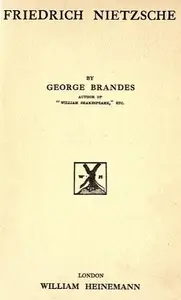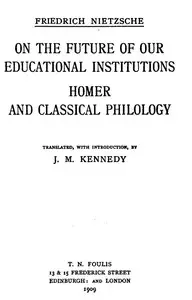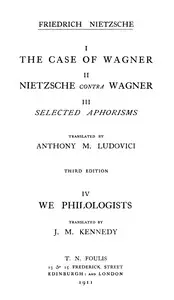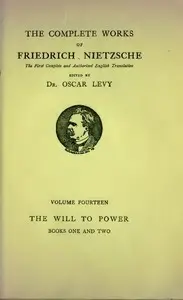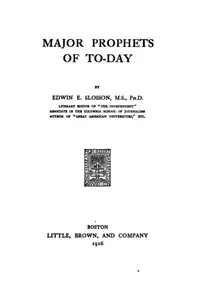"Index of the Project Gutenberg Works of Friedrich Nietzsche" by Friedrich Wilhelm Nietzsche is an assembly of philosophical writings from the late 1800s to the early 1900s that acts as a roadmap to Nietzsche's profound ideas about right and wrong, society, and what it means to be alive. Presenting a list of significant works, including "Thus Spake Zarathustra," "Beyond Good and Evil," "The Birth of Tragedy," and "Ecco Homo," it gives insight into his perspectives, questioning faith, the core of morality, and the driving force within us. By organizing these works, the index guides readers through Nietzsche's wide-ranging philosophical musings, highlighting his core arguments about questioning what we value and challenging long-held ideas about what is good and bad, and the nature of existence. This list serves as a starting point for anyone wanting to explore Nietzsche's groundbreaking ideas.

Index of the Project Gutenberg Works of Friedrich Nietzsche
By Friedrich Wilhelm Nietzsche
Explore the revolutionary ideas which question the very foundation of morality, religion, and power.
Summary
About the AuthorFriedrich Wilhelm Nietzsche was a German classical scholar, philosopher, and critic of culture, who became one of the most influential of all modern thinkers. He began his career as a classical philologist before turning to philosophy. He became the youngest person to hold the Chair of Classical Philology at the University of Basel in Switzerland in 1869, at the age of 24, but resigned in 1879 due to health problems that plagued him most of his life; he completed much of his core writing in the following decade. In 1889, at age 44, he suffered a collapse and afterward a complete loss of his mental faculties, with paralysis and probably vascular dementia. He lived his remaining years in the care of his mother until her death in 1897, and then with his sister Elisabeth Förster-Nietzsche. Nietzsche died in 1900, after experiencing pneumonia and multiple strokes.
Friedrich Wilhelm Nietzsche was a German classical scholar, philosopher, and critic of culture, who became one of the most influential of all modern thinkers. He began his career as a classical philologist before turning to philosophy. He became the youngest person to hold the Chair of Classical Philology at the University of Basel in Switzerland in 1869, at the age of 24, but resigned in 1879 due to health problems that plagued him most of his life; he completed much of his core writing in the following decade. In 1889, at age 44, he suffered a collapse and afterward a complete loss of his mental faculties, with paralysis and probably vascular dementia. He lived his remaining years in the care of his mother until her death in 1897, and then with his sister Elisabeth Förster-Nietzsche. Nietzsche died in 1900, after experiencing pneumonia and multiple strokes.







